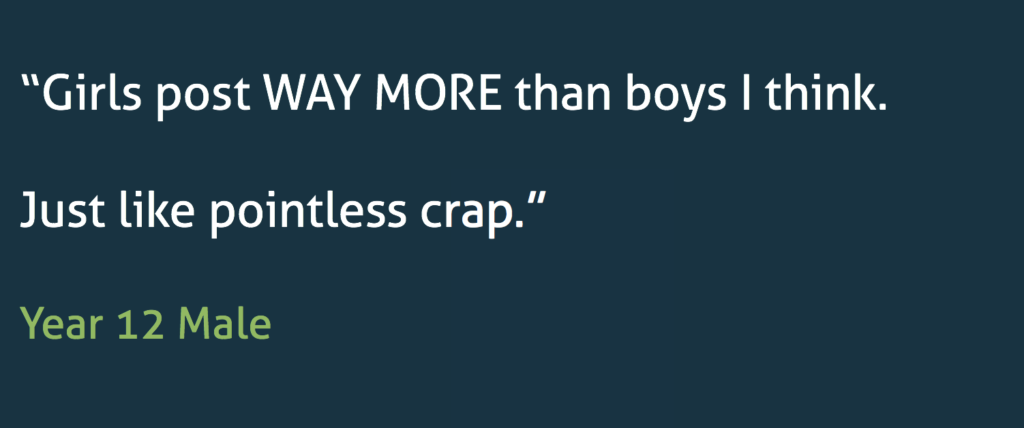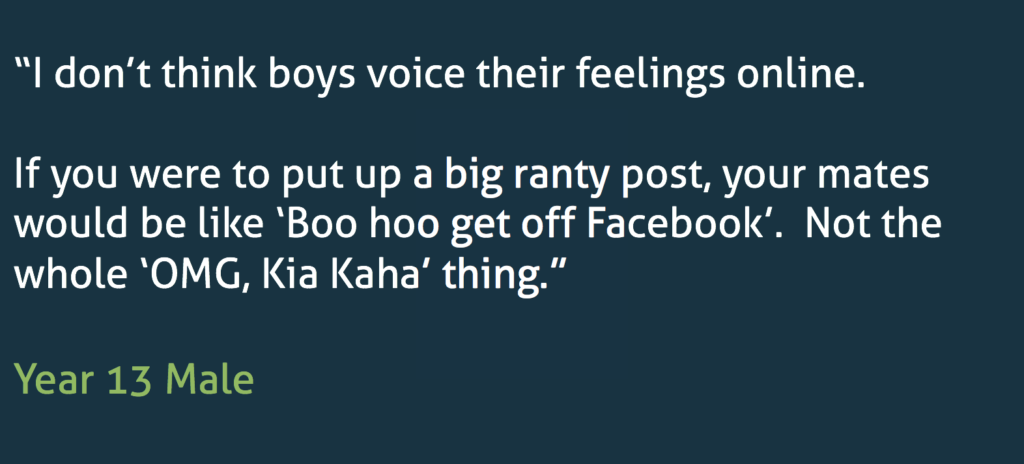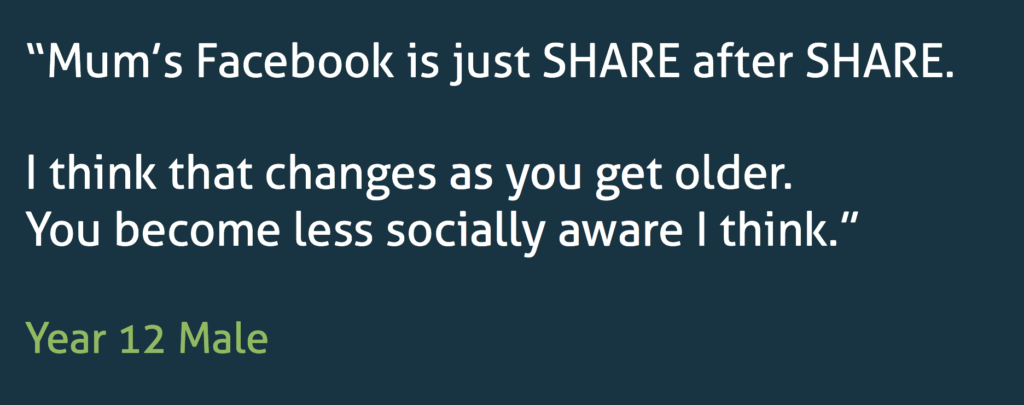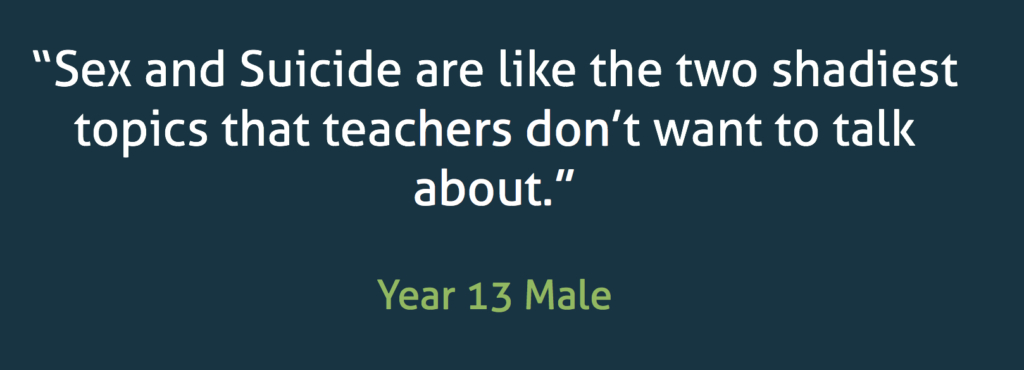A small group of our senior advocates wanted to collect the views of Year 11-13 young men around time and experiences online.
They especially wanted to hear from boys who were considered ‘cool’ or ‘popular’ as these were voices that they felt were not often heard when bullying or harm was discussed.
They held three focus groups. One for each year group.
Pizza and snacks were provided and the sessions were recorded and then transcribed.
Transcriptions were then coded into themes to identify key findings.
We were really pleased with how willing the boys were to take part in the focus groups (but they may have been helped by the pizza) and by their honesty and openness during each group.
Having other students facilitate the focus groups with support from our CEO made things feel really comfortable and all boys that took part said they found the session really interesting and would be happy to do it again.
Gender Differences around time online
All three focus groups identified clear differences in how young men and young women used Social Media.
This was discussed in relation to age as well, with a clear feeling that ‘Mum’s’ were definite ‘Over Sharers’ on Social Media.
There was also a definite perception that girls were more comfortable sharing much more information and doing this publicly (where the boys felt they communicated more in groups or chats)
“Most of our interactions are really just between mates aye, just like in group chats“
“My sister has 5 different Instagram accounts but just posts the same stuff really“
The boys also felt that they were more positive online and things generally stayed that way (but thought girls were very different)
“Girls are like way worse”
“They just end up in fights on Facebook“
“All girls put all their feelings on FB or instagram“
“Yeah if a boy’s got a problem with a boy, they’ll probably just say it to them“
“Girls like go on Facebook and then they’ll be all cryptic and then see each other at school and like run away“
“They expect you to read between the lines and figure out what’s going on“
Boys in year 12 and 13 were divided on whether posts from girls that were really personal and shared emotions were ‘for attention’ or showed that ‘they needed help’
“They (girls) do it (post about them being down etc) so much that it’s hard to tell when they’re being serious“
“They just want attention“
“I think their friends would (help them), if they really do need help, their friends would do it cause they see everything and they comment and shit“
“Sometimes if the girl says something like ‘I’m gonna kill myself’ all the girls in the comments say ‘same’, they don’t say ‘I hope you’re alright’.“
“Or if one says like ‘I’m so ugly’, all the girls are like “no way’ or just ‘feels and xx’ “
Getting Help
All three groups had had friends reach out to them to ask for help when things had not been going well for them.
Most of the boys focused on trying to help friends take their minds off what was going on or share their own experiences.
They also said it was difficult when things were serious and they had been asked not to tell anyone.
There was a clear reluctance to seek help from their guidance counsellor for a range of reasons and over half felt that they would not talk to their parents.
Their suggestion was that support from people their age as a first step would be really helpful and it would be even better if this was online.
“It would be weird though, just like going up to someone“
“It might work best over Messenger or something though“
“Probably an instagram page, cause then you’re scrolling through Instagram and you see tips and info. Then if you post enough, we will see it“
“Yeah, then you can’t see their face and their immediate reaction“
Final thoughts
Overall, the focus groups reinforced our survey data around having an online support tool available for young people who otherwise might not reach out for help.
They also gave us some great ideas about other ways to have our messages and information reach more boys.



